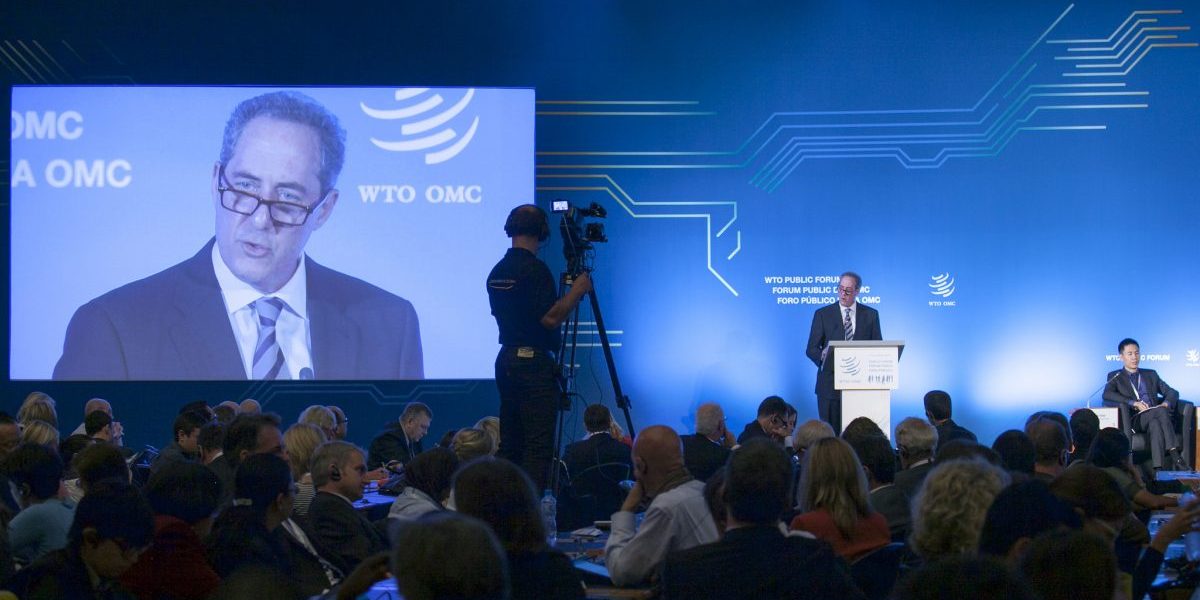The commission intends to cut guaranteed prices of white sugar 39% over four years. The plans are to be considered by the European Union (EU) council of ministers in November and will become policy only upon approval by member states. If fully implemented, the proposed cut is expected to cost African, Caribbean and Pacific sugar-producing countries an estimated €400m a year.
Since colonial times, Europe has been importing raw sugar from African, Caribbean and Pacific countries, which it refines and re-exports. Though African, Caribbean and Pacific countries do not export refined white sugar, the proposed cuts have a direct effect on the price of raw sugar in EU markets. This anticipated effect on African, Caribbean and Pacific sugar exporters highlights the complexities of the broader World Trade Organisation (WTO) agricultural reform process in the Doha round.
Developed-country subsidies and high tariffs, especially on agriculture, must be significantly reduced. This would ensure that rich countries’ trade-distorting measures no longer prevent competent agricultural exporters from competing fairly on the global stage. It is difficult to envisage a successful conclusion to the Doha round that does not take account of these interests.
Yet preference schemes such as the sugar regime are an integral component of developed-country agricultural protection. Preference schemes reserve markets for African, Caribbean and Pacific exports at the expense of low-cost producers such as Brazil and Australia by artificially raising prices for privileged commodities. This system benefits a number of African exporters dependent on such commodities for their livelihood. Naturally, preference beneficiaries would like to delay reforms threatening their preferential access.
Ironically, it is largely the developing world, including the African, Caribbean and Pacific countries, that is pushing for the removal of developed countries’ unfair trade practices. African, Caribbean and Pacific states no longer know who to support: should they align with developed countries to preserve an unsustainable privilege, or support their more competitive fellow developing states mainly found in the Group of 20 alliance led by Brazil and India?
The WTO’s ruling on EU sugar subsidies magnifies the point. In 2003, Australia, Brazil and Thailand took the commission to a WTO dispute hearing to settle whether the sugar regime violated the WTO agreement on agriculture. The complainants accused the EU of providing export subsidies on sugar and exempting from its export subsidy cap the sugar output derived from African, Caribbean and Pacific states, and India.
The dispute was a threat to African, Caribbean and Pacific countries’ preferential access to EU markets, prompting them to join the proceedings as third parties – on the side of the EU. Last year, the WTO ruled in favour of the complainants, declaring EU export subsidies to be in excess of its WTO reduction commitments.
Although the complainants were operating within their WTO rights in taking the matter to dispute settlement, African, Caribbean and Pacific countries were understandably concerned about the collateral damage the case would bring to their vulnerable economies. Australia and Brazil maintained, however, that they were not against the African, Caribbean and Pacific-EU sugar arrangements, just subsidised EU sugar exports.
According to independent studies, subsidies are said to depress the world price of sugar more than 50%.
Similar assurances were given when the infamous banana dispute started. The US filed a complaint with the WTO in 1993 against the preferential treatment African, Caribbean and Pacific bananas received in the EU market. The US argued that the EU banana regime was incompatible with the WTO because it was a quantitative restriction on imports (which is prohibited) and therefore discriminatory. An agreement was reached in 2001 for a tariff-only system to be established by next year. Despite assurances of compensation, the consequences for poor African, Caribbean and Pacific farmers will be devastating: it is estimated that 200000 farmers stand to lose their livelihoods.
What lessons can we derive from all this? First, the EU’s sugar regime reform must be phased in to allow African, Caribbean and Pacific countries to manage a difficult transition. In the interest of sustainable development in such countries, the EU should not cut its sugar prices as severely and in as short a time as it plans – 39% by 2008.
Jose Chilengue, executive director of the Mozambique Sugar Producers Association, recommends that for 10 years at least the EU should increase market access for African, Caribbean, Pacific countries and least-developed countries at current prices to help them to attract investment to their industries. Expansion of current market access would enable African, Caribbean and Pacific sugar industries to benefit from economies of scale, and the prospect of achieving global competitiveness could play in their favour when courting investors.
Second, and in light of the closure of textiles and clothing companies in Lesotho and Mauritius following the expiry of the global clothing and textiles quota system, safety nets for those countries unlikely to successfully diversify or achieve competitiveness must be developed. Assistance should be directed to those countries with a natural comparative advantage in sugar production that are hindered by lack of capital.
In this light, the EU’s proposed adjustment assistance of only €40m, to be extended to 18 African, Caribbean and Pacific sugar exporters (equivalent to a 10th of their projected loss) is clearly insufficient, and should be disbursed before the price cuts begin. The bulk of this money should be invested in building production efficiency.
Such an approach would ensure that the unintended consequences of trade liberalisation are mitigated and thus restore confidence in the multilateral trading system. However, not every country deserves compensation – only resource-constrained least-developed countries and poorer developing countries, selected using an objective economic criterion should qualify. After all, social safety measures are a domestic trade policy issue that middle-income countries should manage on their own.








